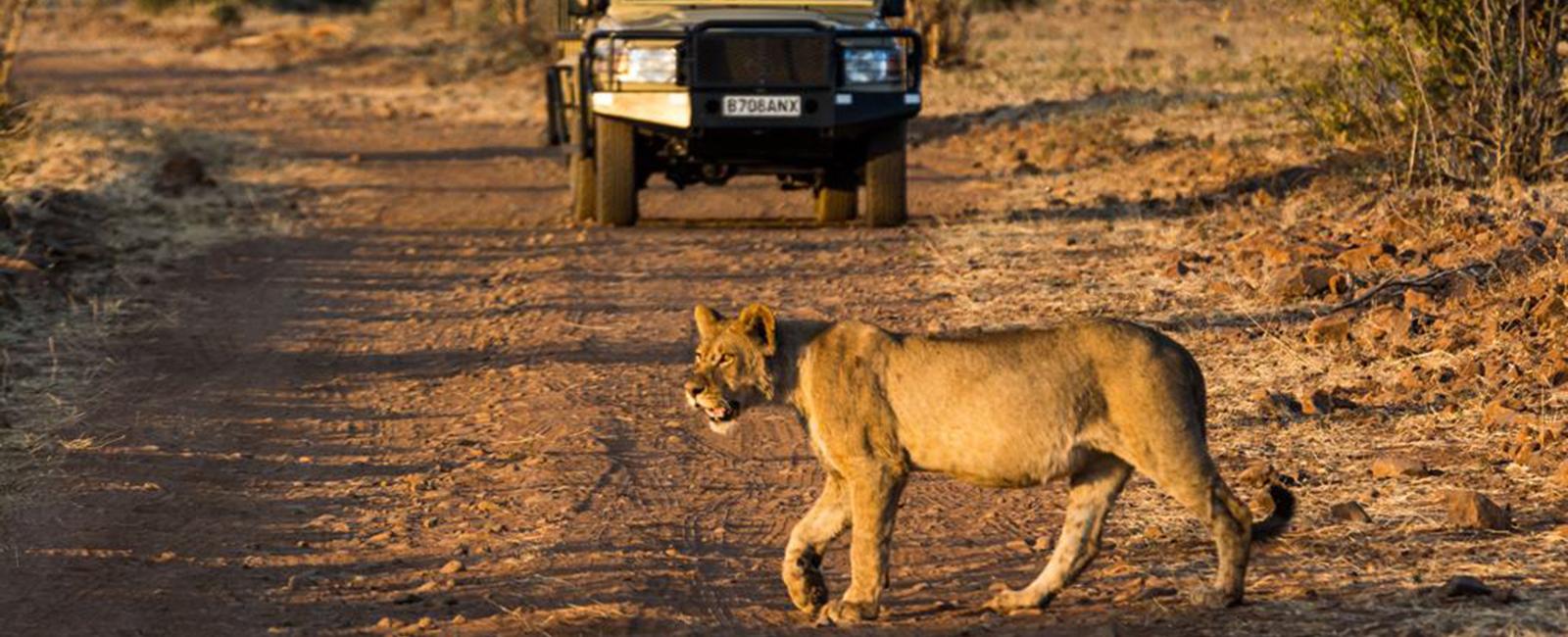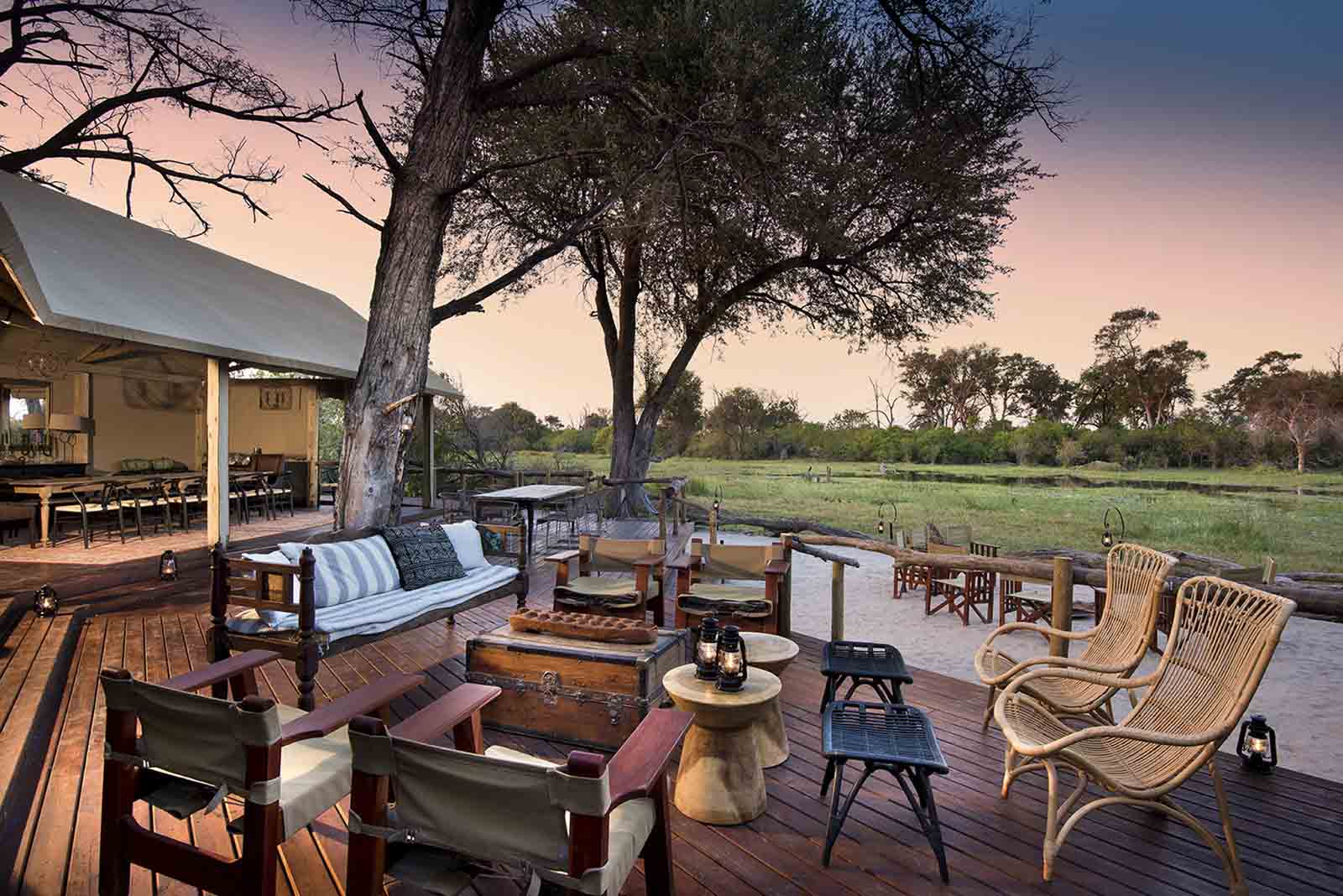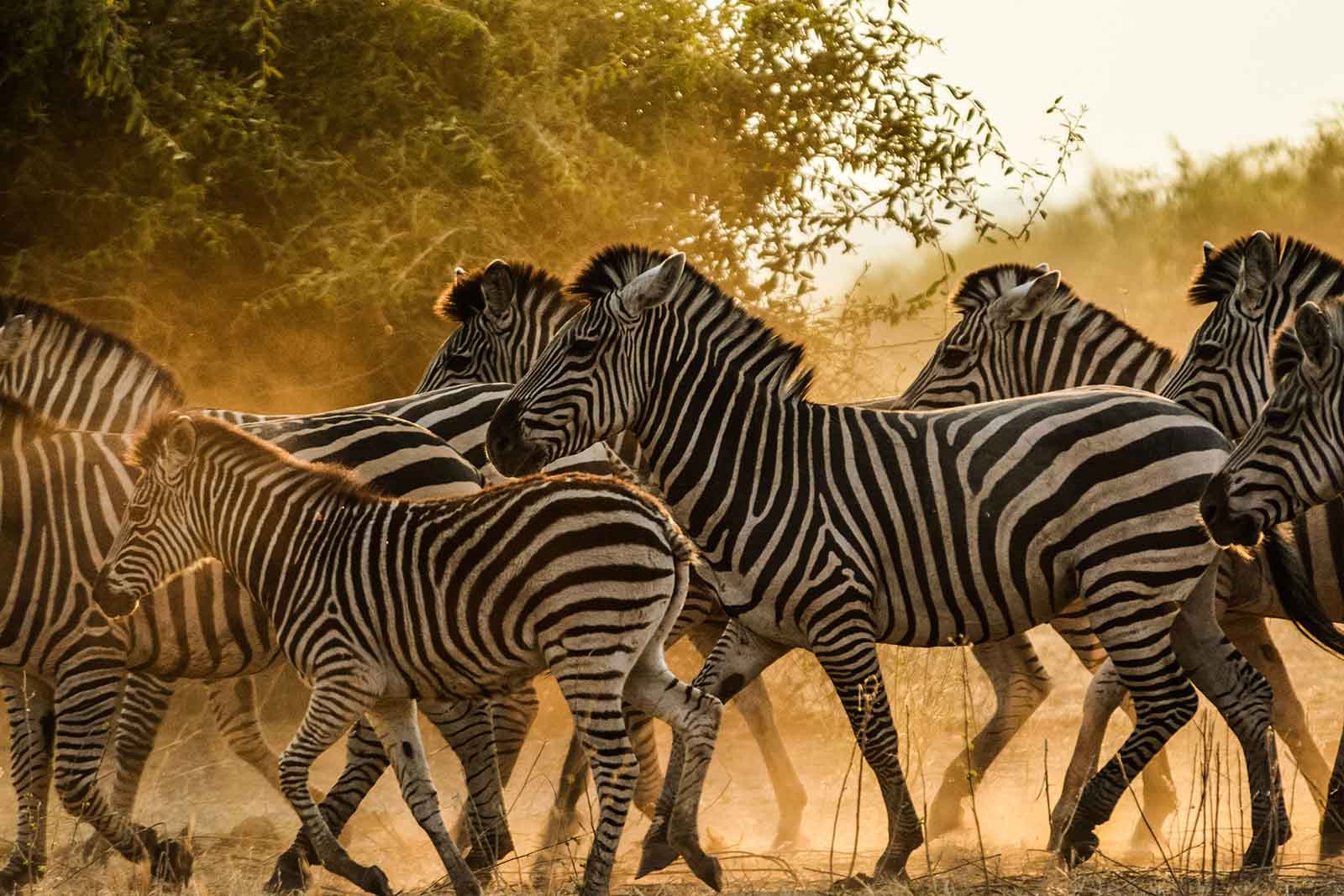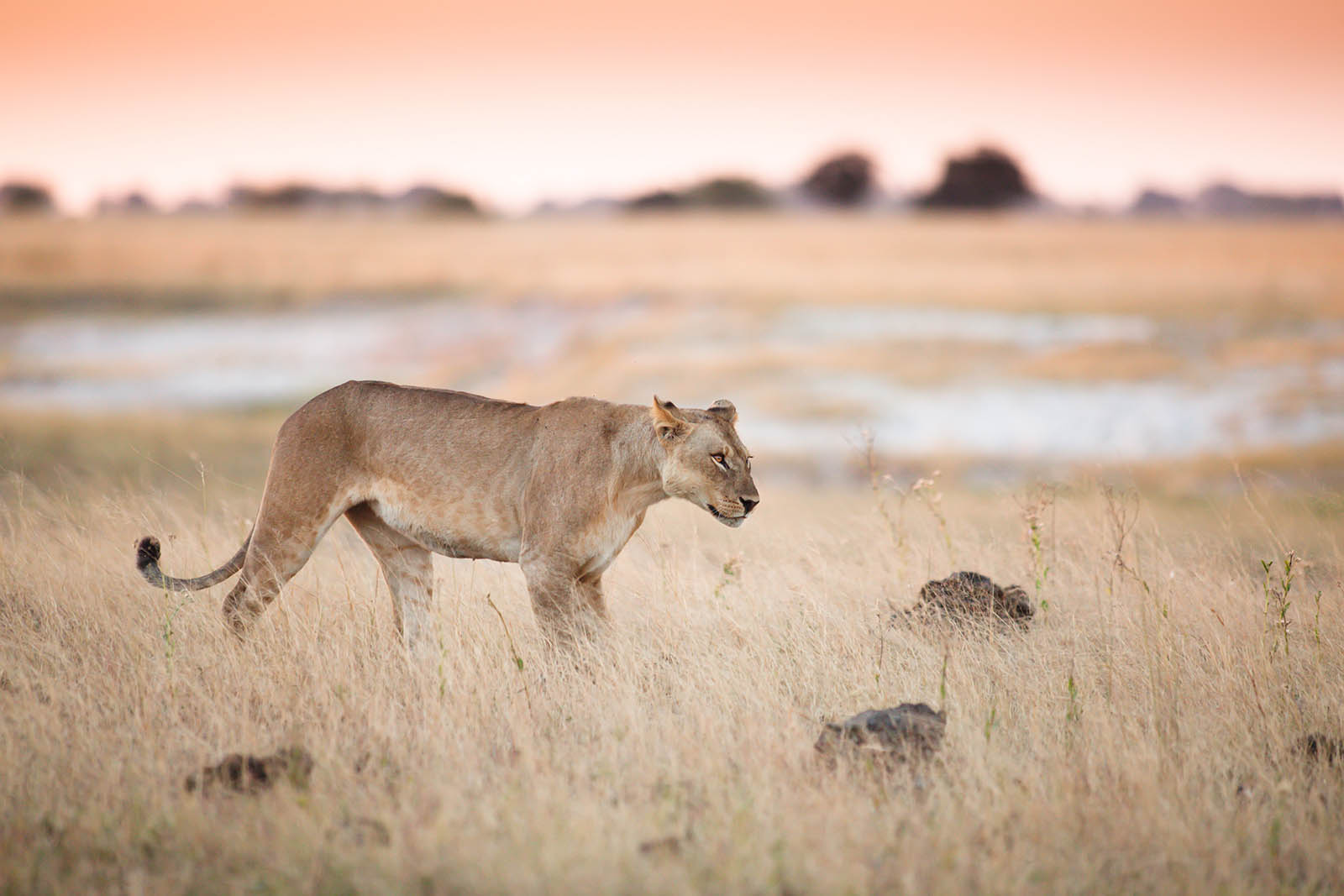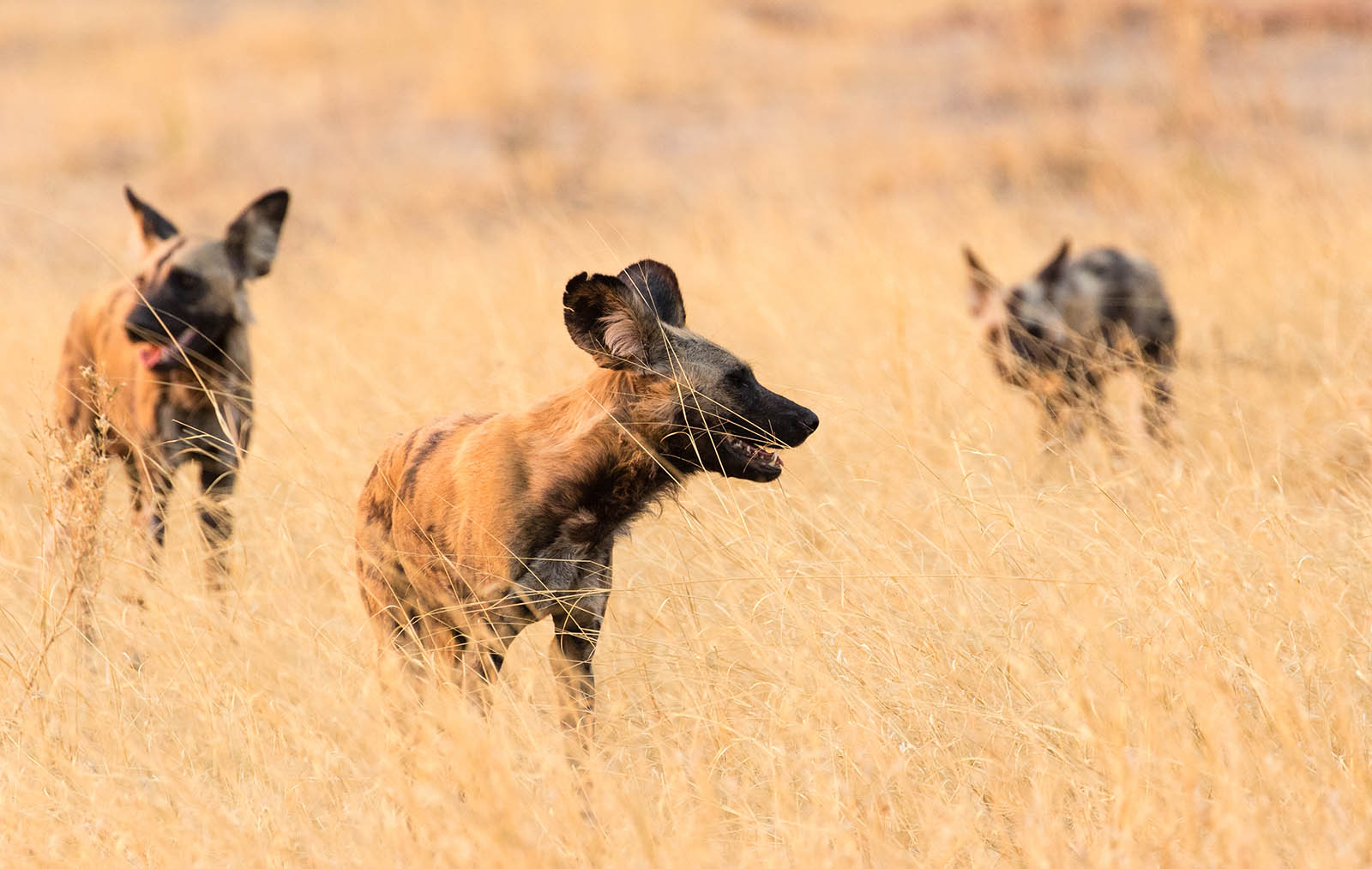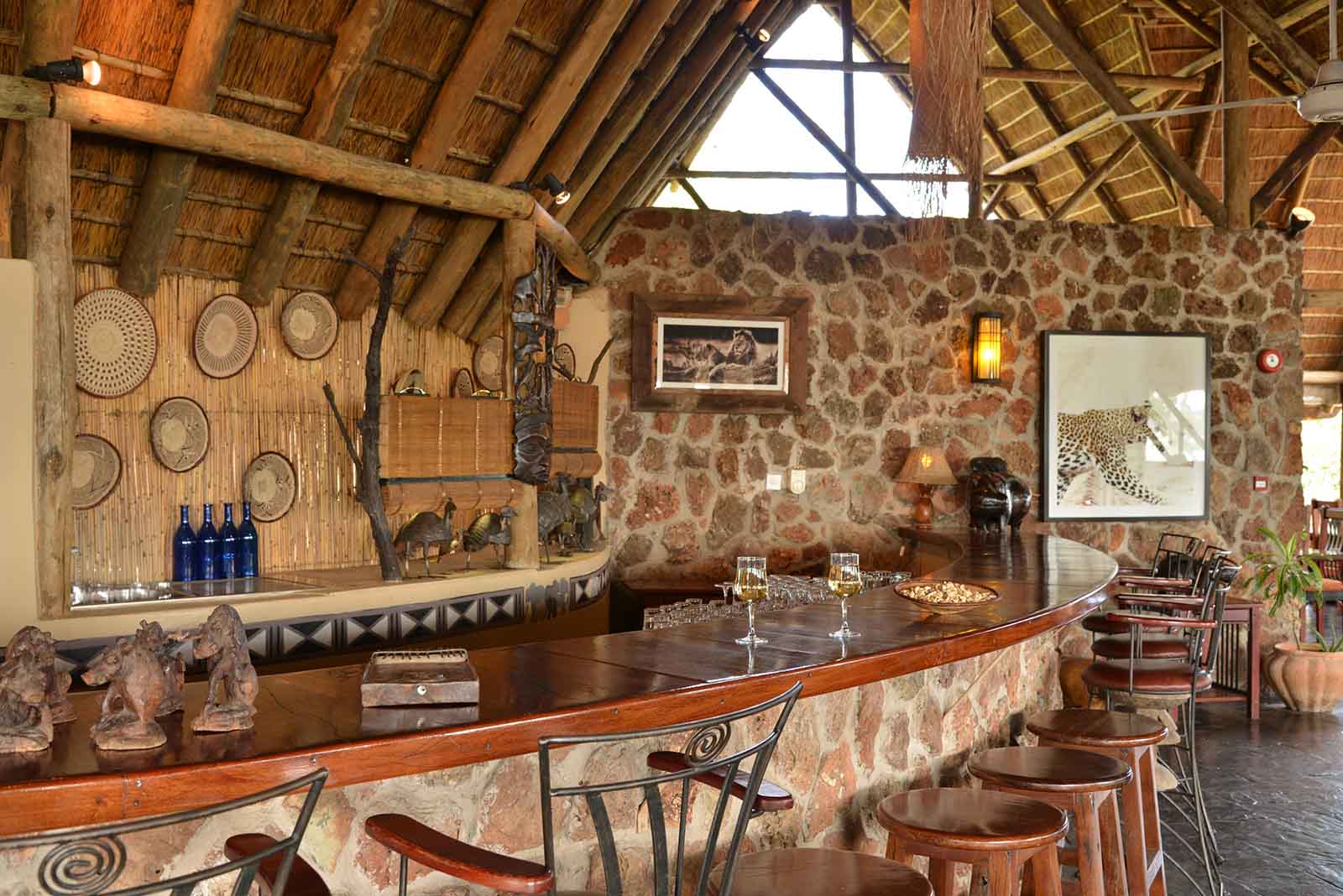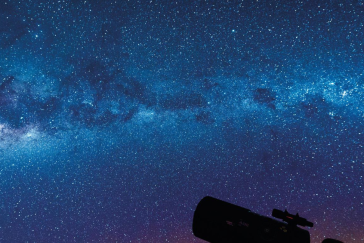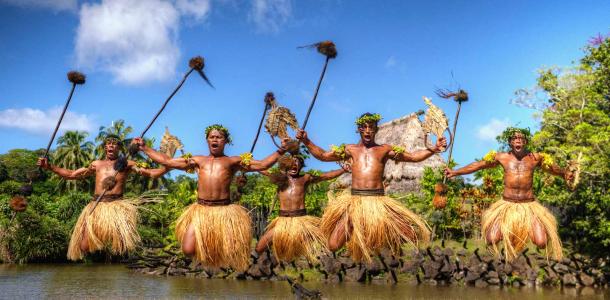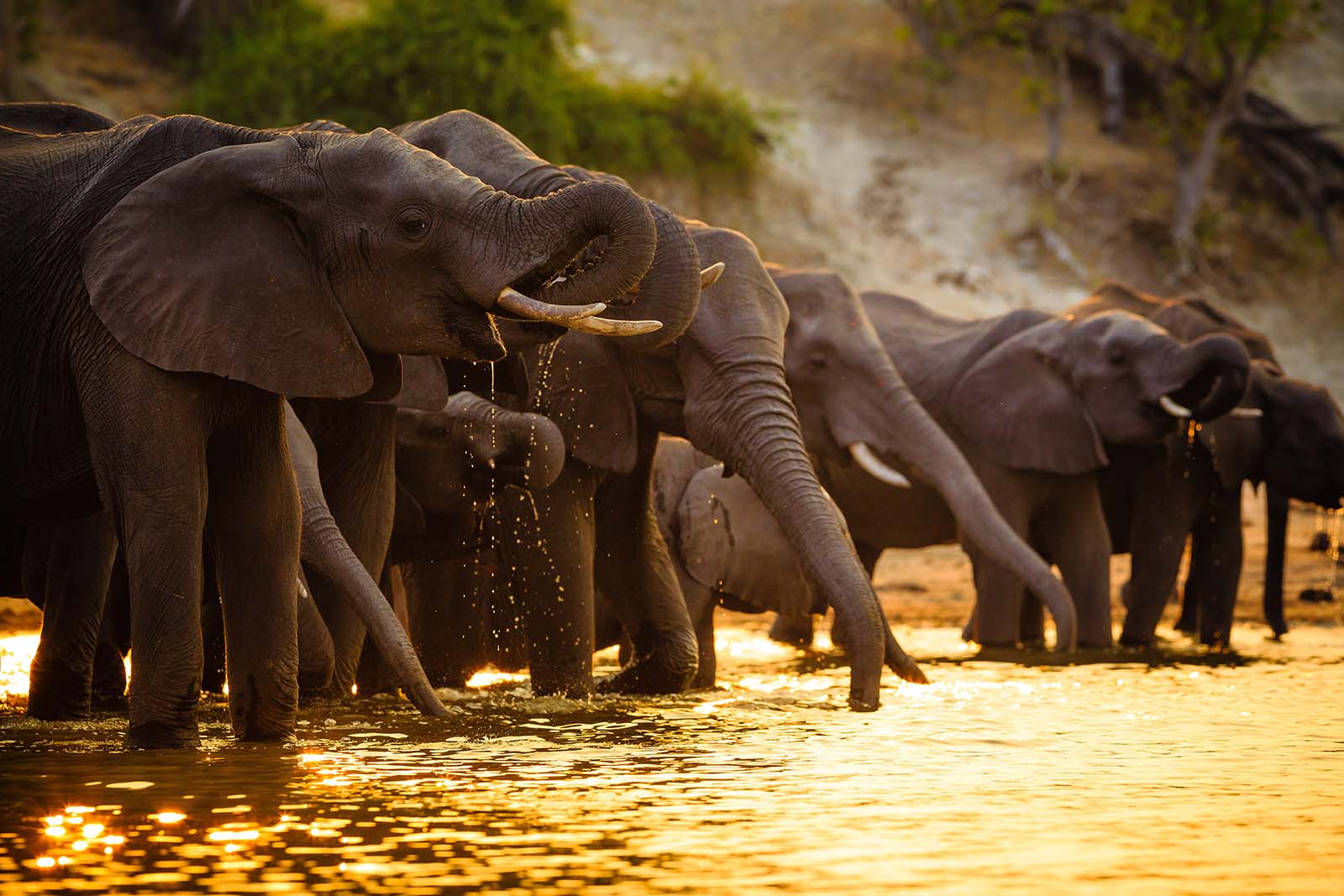
Close encounters of the wild kind are daily, and nightly, experiences on safari in Africa. Get a feel for the safari experience before you go.
A close encounter
“Put your shoes on.”
“What?” asks my wife Lisa, who has just woken me from a peaceful sleep to hear the sounds of a three-metre tall elephant thrashing through the trees outside our tent.
“Put your shoes on,” I repeat. “If we have to bail out of this tent in a hurry, we don’t want to be running through the bush barefoot.”
I’m not concerned about the elephant attacking us. We’ve spent the past three days watching thousands of these massive creatures graze and browse all kinds of vegetation. They haven’t shown the least bit of interest in us.
What does trouble me, however, is the prospect of a heavy tree branch falling on the tent and crushing us. For while the elephants have been docile towards us humans, they’ve been hell on the trees, truncating most of them at about 2.5 metres high, and simply knocking down others that displease them.
It’s four in the morning and we’re standing in our pyjamas and our trail shoes, wondering whether there’s literally about to be an elephant in the room. He’s so close to the other side of the flimsy piece of canvas that separates us that I can smell him. Through the tent’s mesh window, the full moon shines a spotlight on him as he edges still closer to the tent.
The elephant’s trunk brushes lightly against the tent as he reaches for more branches, his eye meeting mine in the moonlight. Like all the other elephants we encountered during the daylight, he seems almost oblivious to our existence. And with good reason. If he wanted to, he and his seven tonnes could crush us like bugs.
I can feel myself holding my breath, so I make a conscious effort to relax and inhale deeply. Our comfortable tent is equipped with not only a sink and toilet, but also an air horn we can sound if ever we feel in danger. I think about using it, but decide against it for fear that the noise might frighten the elephant into becoming aggressive. Plus, we don’t want to be the folks who woke up the entire camp because they were afraid of an elephant.
Not that anybody else was sleeping through all that ruckus. Elephants aren’t exactly known for their stealth. If something gets in their way, they simply trample it. When the elephant tires of the browse nearest our tent, he proceeds to the foliage surrounding the people in the adjacent tent. I breathe a sigh of relief, as Lisa turns to me, still incredulous.
“Holy crap,” we say almost in unison. “An elephant practically came into our tent.”
The Botswana nightlife
The next morning, I look at the foliage above the tent and realise there aren’t any branches that could have plummeted onto our heads. Other elephants had long since stripped them away.
Mwamo, one of the guides, smiled at the foolish tourist when I told him of our plan to evacuate. He said we needn’t have worried; he’d never seen a tent felled by an elephant. But he added it was a good thing we didn’t leave the tent. Dead centre in one of the elephant’s 50cm diameter footprints were the tell-tale paw prints of the leopards that had also visited our camp later that night. Not far away were fresh tracks left by the hyenas that live in a nearby den. Apparently, there was a lot more nightlife in the Okavango Delta than I knew.
Whatever embarrassment I feel at having been such a scaredy-cat the night before is immediately erased by the thought of seeing leopards. We chose Botswana because of its rich and abundant variety of wildlife, and we haven’t been disappointed. We spent the first three days of our safari at a lodge just outside Chobe National Park, where we lost count of all the zebras, hippos, cape buffalo, and giraffes (surprisingly well camouflaged for five-metre tall animals), not to mention warthogs, wildebeest and five different kinds of antelopes.
But we didn’t spot any leopards, and we only saw lions during the waning hours of that stay thanks to some quick and decisive tracking by our first guide, Lipps. He was just as frustrated as we were that we hadn’t seen any cats so, on our final game drive, he made it his mission to speed by all the garden-variety grass-eaters in search of predators.
On safari
After a pre-dawn breakfast of porridge and coffee, we headed out in the cool early morning but two hours of driving around produced only more herbivores. Then just as the African sun started rising and we started shedding our outer layers, Lipps saw tracks in the sandy soil. Driving another few metres up the road he motioned to a spot across the Chobe River. Two adolescent male lions were on the Namibia side, deciding where to cross. They plunged into the slow-moving water with the same relish as my Labrador retriever does, and swam across the river faster than Michael Phelps. Back on land on the Botswana side, they headed directly at us.
The only sound I heard was the beating of my heart as the lions padded towards our vehicle. But they weren’t interested in us; lions tend to view vehicles as one very large tin can, rather than as six fish in a barrel. One of the lions passed in front of the jeep, the other went around the back and they both disappeared into the thicket as quickly as they emerged.
We’ll see another dozen lions on our trip, but none with the urgency that these two teenagers possessed. All the others we encounter are sleeping the day away, unconcerned about where they lie, taking full advantage of their title as king of the jungle.
The call of the wild
The wild dogs we find later that afternoon are another story. They too are sleeping in a meadow when our vehicle first rolls up on them. However, unlike the lions, they never completely relax. At least one of them always seems to have a round ear cocked.
As the sun’s heat started to relent all three of them stir, shaking their heads to clear the cobwebs and yawning to reveal an impressive set of canines. We follow them around a bend where they join up with several of their compatriots and begin making preparations to scare up dinner. There are 19 in all, 12 adults and seven puppies just old enough to join the hunting party.
In theory, anyway. In size, the puppies look like three-quarter versions of their adult parents. But in demeanor they’re little different than domesticated pups. Instead of stealing quietly through the bush, they yelp, wrestle with one another, run around in aimless circles, and lag so far behind the pack leaders that other dogs have to come back from the front to round them up.
The lead dogs constitute an impressive operation, communicating silently how they should split up in order to flank and surround their prey. And if the puppies can keep up, I have no doubt we will be witness to a gruesome kill. Mwamo recounts a night earlier in the week when the same pack eviscerated an impala right in front of the dinner table, to the awe – and later, disgust – of the previous guests.
This evening, though, the puppies simply will not co-operate; they refuse to be anything other than puppies. I can see the Darwinian calculation going on in the lead dog’s head: keep hunting and eat well tonight, or go hungry but make sure a laggard pup isn’t caught by lions. In the end, they choose the latter.
As the sun goes down
We, on the other hand, face no such tough choices. As dusk begins to gather, it’s time for our favorite ritual of the trip: the sundowner. We hop out of the truck at a quiet meadow overlooking the river and Mwamo opens up a cooler full of drinks. The heat and the need to ward off malaria are excuse enough for a round of gin and tonics.
After that, it’s back to camp for a homey, family-style dinner, and maybe another cocktail while sitting around the wood-burning fire, where the conversation returns to the elephantine excitement of the night before. Then it’s early to bed so we can do it all over again.
WHERE TO STAY
- Muchenje Safari Lodge just outside Chobe National Park offers luxury accommodation in 11 thatched cottages with indoor plumbing, air conditioning and a pool with views of the Chobe and Caprivi flood plain.
- Khwai Tented Camp, Khwai Community Khwai Tented Camp, is set within the Okavango’s community-run Khwai Concession on the other side of Chobe. Accommodation is in six ensuite (toilets and sinks) tents dotted along a lagoon. As Khwai is a community-run concession all proceeds from tourism go directly to help the local people and projects through the Khwai Community Trust and the staff and their hospitality made this a memorable stay.
GETTING THERE

